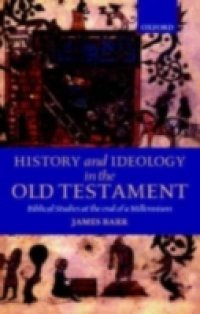The end of the millennium sees biblical study in a state of transition. The traditional position of historical approaches is widely questioned and 'historical criticism' is regarded as passé. There is a search for approaches literary or sociological that are less tied to history. On the other hand there is a more radical approach to the history of Israel, that sees true history as distinct from the biblical narrative and dependent on sources other than theBible. Biblical narratives thus express not the actual events but the ideological and religious aspirations of writers in much later times. 'Ideology' has become one of the key words, but is used in very divergent ways. All this is linked with the intellectual movement known as post-modernism. Someconnections between post-modernism and theology are suggested by Professor Barr in the final chapter. This book is important because it tries to bring together various threads of these different movements and to state a position from which we may advance into the next millennium.

